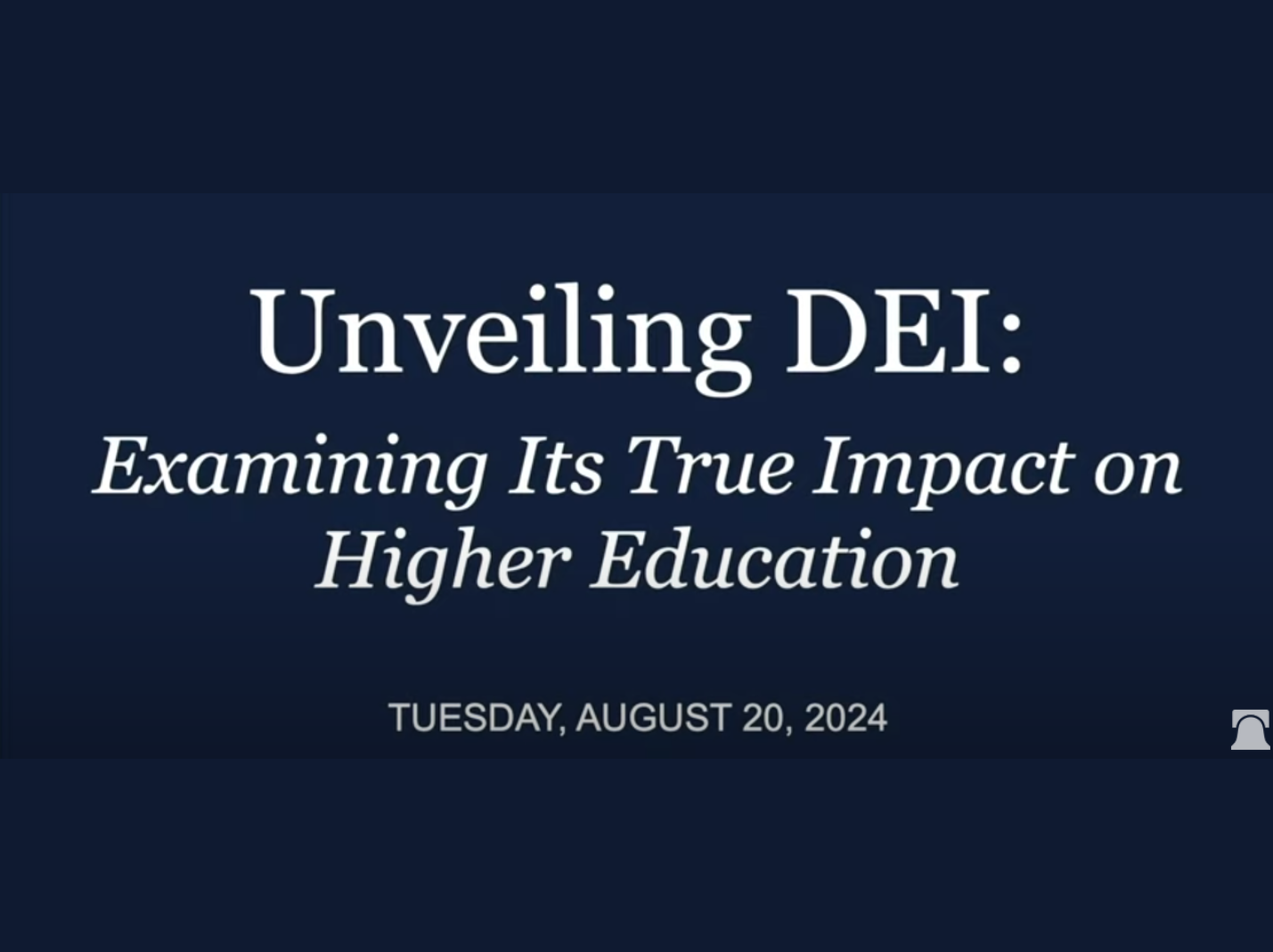
The National Association of Scholars (NAS) joined the Heritage Foundation for a panel discussion, “Unveiling DEI: Examining Its True Impact on Higher Education,” on August 20 in Washington, D.C. A recording of the full event, which featured Jay Greene, Heritage senior research fellow; Scott Yenor, professor of political science at Boise State University and Washington Fellow at the Claremont Institute; Ken Cuccinelli, former Virginia attorney general; Teresa Manning, NAS policy director and president of the NAS Virginia affiliate vice president; and George La Noue, UMBC emeritus professor of political science and public policy and president of the NAS Maryland affiliate, can be found on YouTube.
The reports on “diversity, equity, and inclusion” (DEI) campus activities focused on the different problems these programs create. Though DEI officers don’t teach or conduct research, their influence and budgets continue to grow.
For example, the University of Michigan plans to increase its DEI budget from $18 million to $30 million. The two reports from Heritage and NAS Virginia surprisingly found substantial DEI expenditures within that state. Since DEI offices don’t define specific campus problems they aim to solve, there appears to be no limit to their expansion.
The NAS Maryland report focused on the legal problems that DEI programs often create. When DEI affirmations are required in job interviews, promotions, or research grants, they can amount to unconstitutional compelled speech. Additionally, when campuses treat members of certain racial and ethnic groups differently in admissions, financial aid, campus spaces, and events, they can violate the 14th Amendment’s equal protection clause and Title VI civil rights rules, especially after the Supreme Court’s 2023 Students for Fair Admissions decision.
Given these issues, a report examining the advice various state Attorney Generals are giving to their campuses about complying with this new legal environment was proposed.
Image of YouTube thumbnail